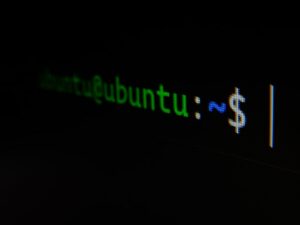
There are many misconceptions in the world, particularly in the world of computing. You can learn all you want, but if you learn from unreliable sources, the results are going to be problematic. You will end up knowing less than you should, particularly if the sources are various articles which have no scientific references. Even if there are references, coherent and cohesive articles are good, but references don’t guarantee anything except that someone said something that you referenced.
One of the major mistakes that people make nowadays is thinking that Linux is the same as its distributions, or rather OSs. Linux is not an operating system, not as we think of one nowadays.
Frequently compared and confused terms are Ubuntu and Linux, often used interchangeably. Ubuntu and Linux are different, even though one uses the other and vice versa.
Here are the differences between the two.
Linux is a Kernel

This is the first thing that people forget about Linux. Linux is often associated with the various distributions and operating systems that use the Linux kernel, typically Ubuntu, Fedora, Manjaro, Arch, Gentoo if you like memes and torture, and so on and so forth.
However, Linux is just a kernel, one that is very good and effective.
Now, a kernel differs from an operating system in the sense that the kernel is the very code that helps translate and bridge the gap between upper layer code and the machine. The operating system is everything else that is built around the kernel, to help the user use the computer more easily.
Ubuntu is an Operating System

Ubuntu is an operating system, meaning that it uses a kernel and has other additional software that helps the user operate the computer with ease. Things that are helpful in this reward are package managers, a display renderer such as Xorg or Wayland, a desktop environment, GNOME for Ubuntu, or others for some of its flavors, and finally, programs which you use daily, such as browsers, file managers, media players, Steam, and so on
.An operating system has everything a user needs to do daily tasks, even something as complicated as Gentoo, where you have to install everything from scratch using the terminal, and even compile it manually.
Even so, Linux is still a kernel and Ubuntu an operating system.
More Differences Between a Kernel and an OS
Kernels are basically the main code that is loaded into the memory when you start the system. Linux is a monolithic kernel, meaning that all the code runs alongside the main thread of the kernel. The kernel does a couple of things and those are the most important ones, such as memory, process, disk and task management.

An operating system manages the resources of the system, such as the programs and the things that the user sees, while the kernel manages everything else, relaying information to the processor, and then back to the user.
These are the basic differences between Linux and Ubuntu, one is a kernel and another, an operating system using the said kernel.